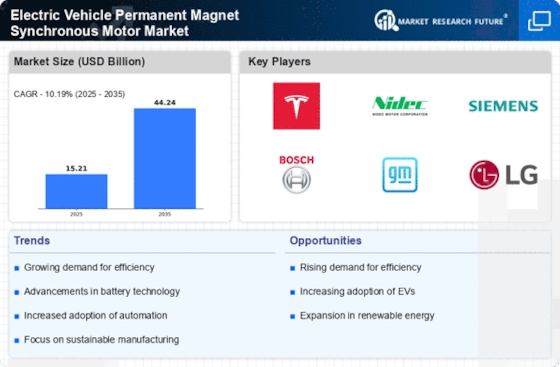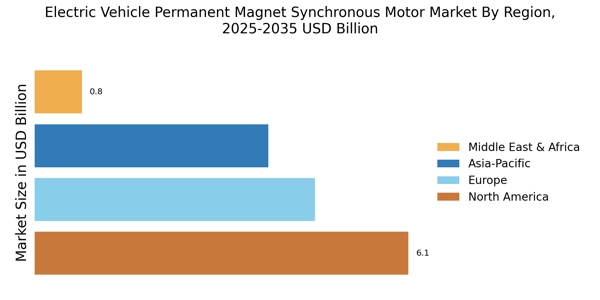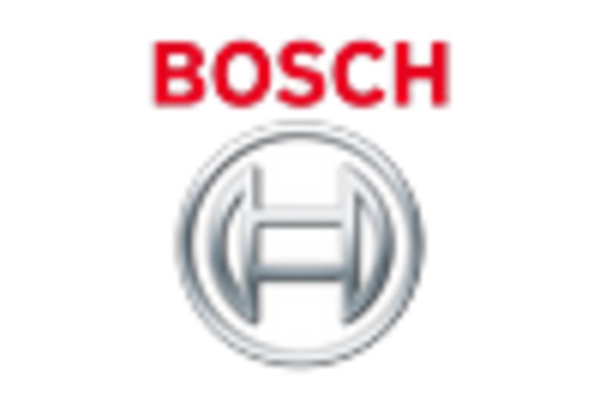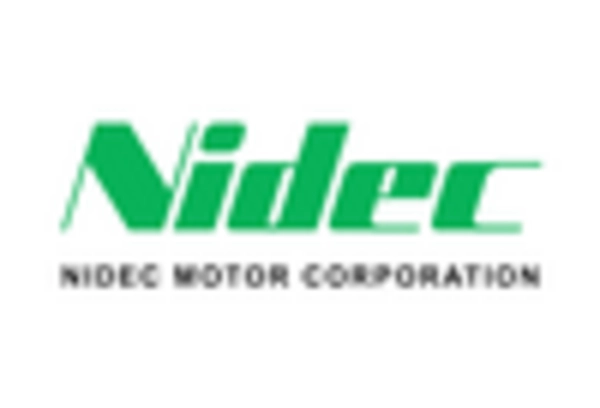Government Incentives and Policies
Government incentives and policies play a pivotal role in shaping the Electric Vehicle Permanent Magnet Synchronous Motor Market. Many governments are implementing favorable policies to encourage the adoption of electric vehicles, including tax credits, rebates, and grants for EV manufacturers. These initiatives are designed to reduce the overall cost of electric vehicles, making them more accessible to consumers. In 2025, it is anticipated that government support will lead to a 25% increase in electric vehicle sales, thereby driving demand for permanent magnet synchronous motors. Such policies not only stimulate market growth but also align with broader sustainability goals aimed at reducing carbon emissions and promoting clean energy solutions.
Growing Focus on Energy Efficiency
The increasing emphasis on energy efficiency is significantly influencing the Electric Vehicle Permanent Magnet Synchronous Motor Market. As consumers and manufacturers alike prioritize sustainability, the demand for energy-efficient motors is on the rise. Permanent magnet synchronous motors are known for their high efficiency and low energy consumption, making them an attractive choice for electric vehicles. In 2025, the market is expected to witness a surge in demand for these motors, driven by the need to enhance the overall energy efficiency of electric vehicles. This trend aligns with global efforts to reduce energy consumption and minimize environmental impact, further solidifying the position of permanent magnet synchronous motors in the electric vehicle sector.
Rising Demand for Electric Vehicles
The increasing consumer preference for electric vehicles (EVs) is a primary driver for the Electric Vehicle Permanent Magnet Synchronous Motor Market. As environmental concerns gain prominence, more consumers are opting for EVs over traditional internal combustion engine vehicles. In 2025, the demand for electric vehicles is projected to reach approximately 30 million units, significantly boosting the need for efficient and reliable motors. The shift towards electric mobility is further supported by advancements in battery technology, which enhance the overall performance of EVs. Consequently, the Electric Vehicle Permanent Magnet Synchronous Motor Market is likely to experience substantial growth as manufacturers strive to meet the rising demand for high-performance electric motors.
Expansion of Charging Infrastructure
The expansion of charging infrastructure is a crucial driver for the Electric Vehicle Permanent Magnet Synchronous Motor Market. As more charging stations are established, the convenience of owning an electric vehicle increases, thereby encouraging consumer adoption. In 2025, it is projected that the number of public charging stations will exceed 1 million, facilitating the growth of the electric vehicle market. This expansion not only supports the use of electric vehicles but also enhances the demand for efficient motors, such as permanent magnet synchronous motors, which are integral to the performance of these vehicles. The synergy between charging infrastructure and motor technology is likely to propel the market forward, creating a more robust ecosystem for electric mobility.
Technological Innovations in Motor Design
Technological advancements in motor design are propelling the Electric Vehicle Permanent Magnet Synchronous Motor Market forward. Innovations such as improved magnetic materials and advanced cooling techniques are enhancing the efficiency and performance of permanent magnet synchronous motors. For instance, the introduction of high-energy-density magnets has led to motors that are lighter and more compact, which is crucial for electric vehicle applications. In 2025, the market for these advanced motors is expected to grow at a compound annual growth rate of around 15%. This growth is indicative of the industry's commitment to developing cutting-edge technologies that not only improve motor performance but also contribute to the overall efficiency of electric vehicles.

















